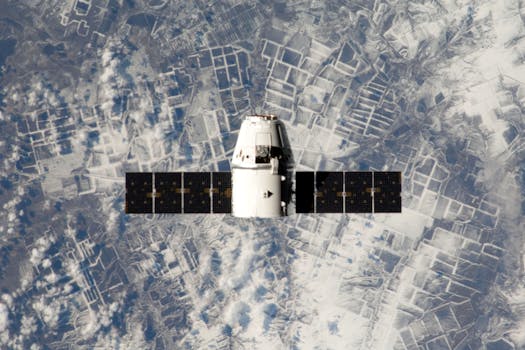The Future of Satellites: Revolutionizing Global Connectivity and Beyond

The Future of Satellites: Revolutionizing Global Connectivity and Beyond
The future of satellites is poised to revolutionize global connectivity, enabling faster and more reliable communication, navigation, and remote sensing. With advancements in space technology, satellites are becoming increasingly important for various industries and applications. The future of satellites holds immense potential, and it is essential to explore the latest trends, innovations, and challenges in this field.
Satellites have been a crucial part of modern technology, providing a wide range of services, including television broadcasting, telecommunications, weather forecasting, and navigation. However, the future of satellites is not limited to these traditional applications. With the advent of new technologies, such as satellite constellations, reusable launch vehicles, and advanced propulsion systems, the possibilities for satellite-based services are expanding rapidly.
Advancements in Satellite Technology
One of the most significant advancements in satellite technology is the development of satellite constellations. These constellations consist of multiple small satellites working together to provide global coverage and high-speed connectivity. Companies like SpaceX, OneWeb, and Amazon Kuiper Systems are leading the charge in this area, with plans to launch thousands of satellites in the coming years. These constellations will enable faster and more reliable communication, navigation, and remote sensing, and will have a significant impact on various industries, including telecommunications, aviation, and maritime.
Another area of advancement is reusable launch vehicles. Companies like SpaceX and Blue Origin are developing launch vehicles that can be reused multiple times, significantly reducing the cost of launching satellites into orbit. This technology will make it more accessible and affordable for companies and governments to launch satellites, leading to an increase in the number of satellites in orbit.
Challenges and Opportunities
Despite the advancements in satellite technology, there are several challenges that need to be addressed. One of the significant challenges is space debris. With the increasing number of satellites in orbit, the risk of collisions and the accumulation of space debris are becoming major concerns. This can have a significant impact on the safety and reliability of satellite-based services.
Another challenge is regulatory frameworks. The current regulatory frameworks for satellites are outdated and need to be revised to accommodate the latest advancements in technology. This includes issues related to spectrum allocation, licensing, and liability.
However, the future of satellites also presents numerous opportunities. Satellites can play a crucial role in bridging the digital divide, providing internet access to remote and underserved communities. They can also enable the development of new services, such as satellite-based navigation, remote sensing, and earth observation.
Applications and Industries
The future of satellites has significant implications for various industries and applications. In the telecommunications sector, satellites will enable faster and more reliable communication, providing high-speed internet access to remote and underserved communities. In the aviation and maritime sectors, satellites will enable more accurate navigation and tracking, improving safety and efficiency.
In the field of remote sensing and earth observation, satellites will provide valuable data and insights, enabling better management of natural resources, monitoring of climate change, and prediction of natural disasters. Satellites will also play a crucial role in the development of new services, such as satellite-based navigation, precision agriculture, and smart cities.
Conclusion
In conclusion, the future of satellites is poised to revolutionize global connectivity and beyond. With advancements in satellite technology, the possibilities for satellite-based services are expanding rapidly. However, there are several challenges that need to be addressed, including space debris and regulatory frameworks. The future of satellites presents numerous opportunities, including bridging the digital divide, enabling new services, and improving safety and efficiency. As the satellite industry continues to evolve, it is essential to stay informed about the latest trends, innovations, and challenges in this field.







